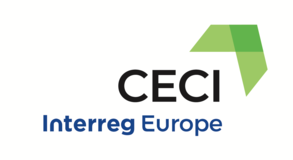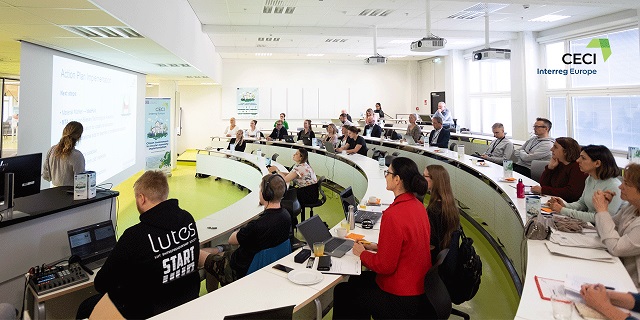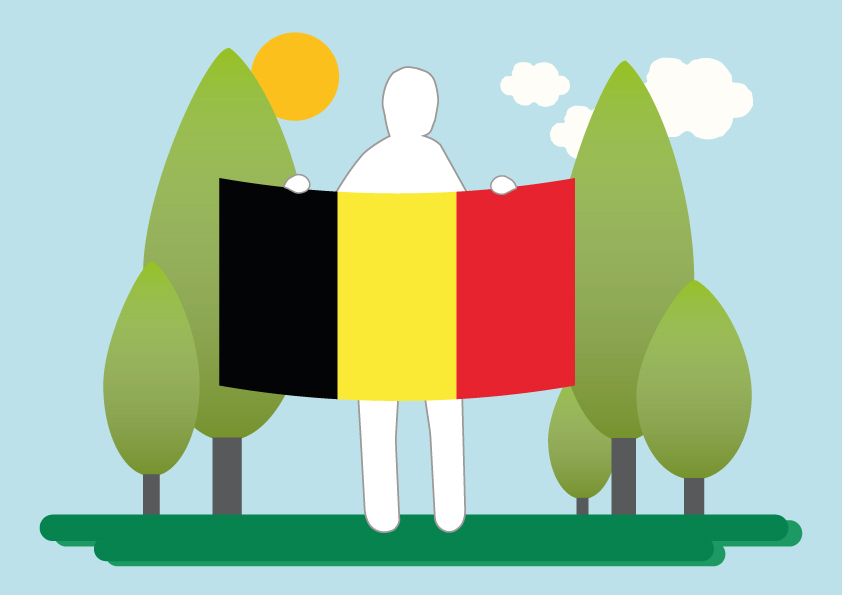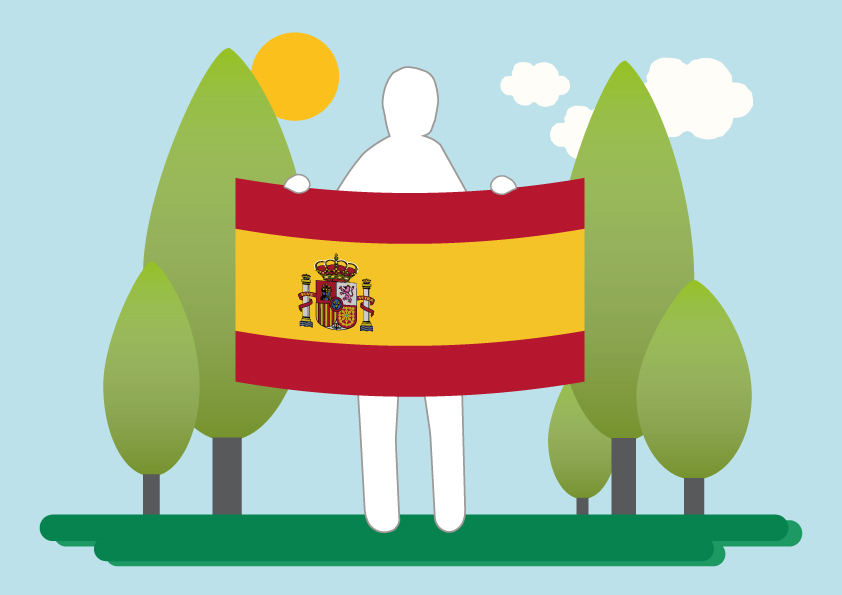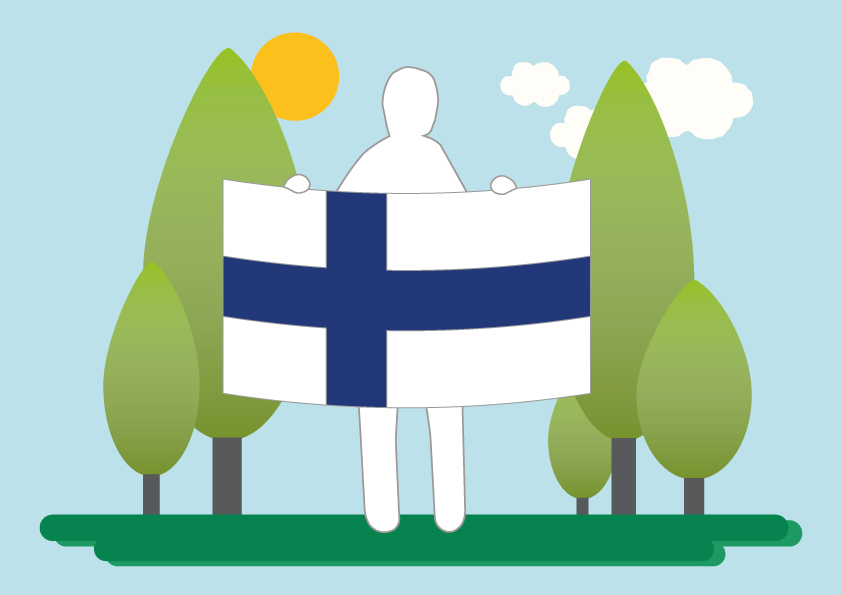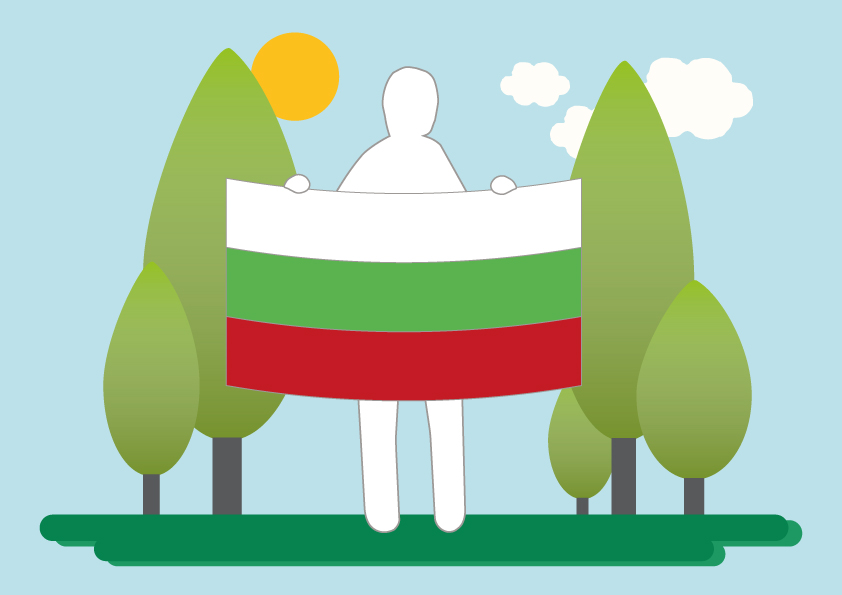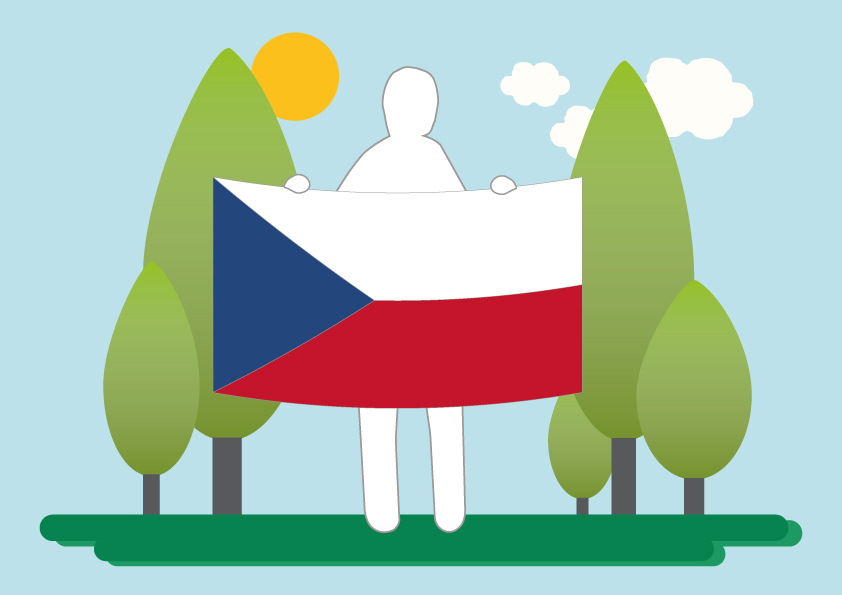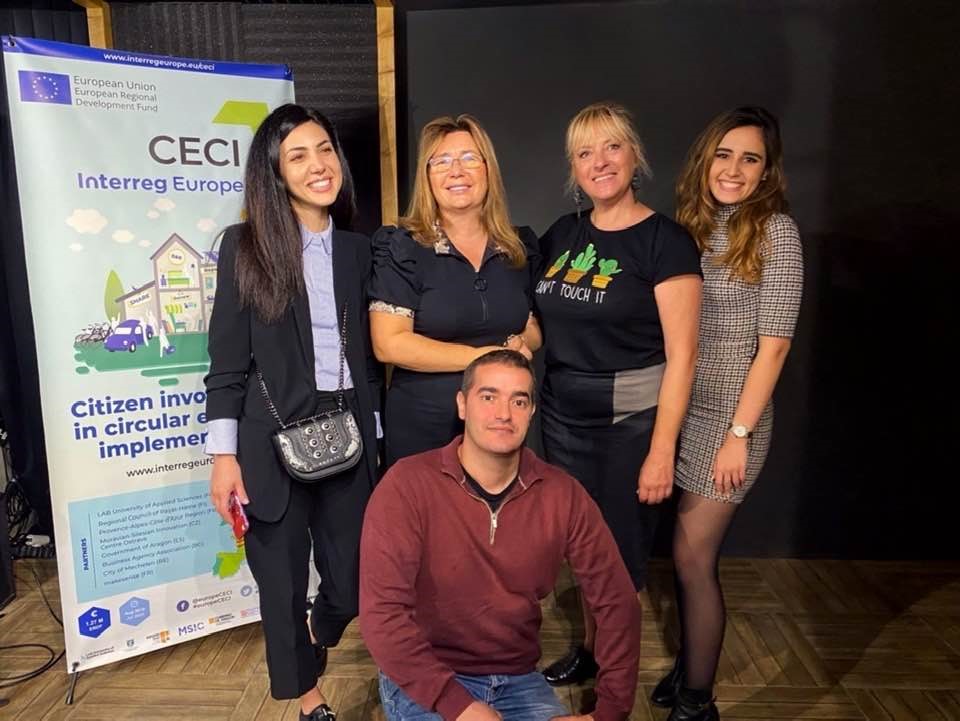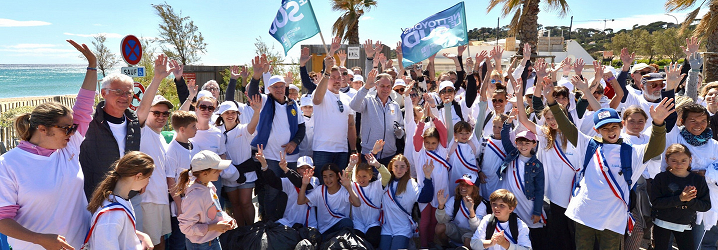Developing sharing economy and service design with citizens
proceed and read full article here: https://www.labopen.fi/en/lab-pro/developing-sharing-economy-and-service-design-with-citizens/https://www.labopen.fi/en/lab-pro/developing-sharing-economy-and-service-design-with-citizens/
CECI project invited citizens to develop circular and sharing economy solutions for citizens in the Päijät-Häme region. This article concludes the second part of the two-part sharing economy hackathon. Describing the creative process of the workshop and outcome of the Hackathon with detailed information on the four sharing economy concepts developed together with the participating citizens.
The first part of the hackathon had more than 40 listeners whom were lectured about the possibilities of sharing economy in the present and the future. The second part of the hackathon took place in the form of a three-hour workshop in the spring 2021, facilitated by Demos Helsinki, with 27 active participants.
The goal of the hackathon was to explore and build new practical business opportunities to match the growing need for sharing economy practices in the Päijät-Häme region. The hackathon started with a brief recap informing of the principles of the sharing economy and exploring existing business model, followed with explaining thoroughly the three themes of the hackathon: sustainable textiles, sustainable housing and services, and sustainable mobility (Regional Council of Päijät-Häme 2021.) The themes of the workshop were previously identified and chosen by LAB and Regional Council of Päijät-Häme.
The future paths of sharing economy services
The hackathon opened participants minds with brainstorming together ideas of the future. Participants discussed on how sharing economy can offer and provide new kinds of additional income to citizens. Futuristic sharing economy services are taking inspiration from services that were functioning in the past that could be modified and implemented in the future as “new” circular services. Furthermore, sharing economy will inspire hybrid professions and boost new paths and routes to entrepreneurship, for instance boat rental from the ice cream stand in the harbor or employees own flee market in the office (Neuvonen 2021). In short disappearing or disappeared services are re-emerging in new entrepreneurial forms requiring building practical business models to match the growing need of the everchanging society.
The aim of the hackathon was to identify, brainstorm and conceptualize concrete business ideas in Päijät-Häme Region. Participants were divided into four groups according to topic of interest. The groups were based on previously identified themes: sustainable textiles, sustainable housing and services and sustainable mobility. The themes and finding new sharing economy solutions is an urgent matter as 72% of global greenhouse gas emissions can be related to citizens everyday consumption habits (Salo & Nissinen 2017; Kälviäinen 2019). Therefore sufficiency-based lifestyle solutions need to fit into citizens lives better in order to result in sustainable change.
The outcome of the Hackathon: four flourishing sharing economy services
The workshop proceeded by utilizing custom Business Model Canvas for each group, filling a total of eight pages. The aim was to brainstorm and conceptualize concrete business ideas. Participants were divided into four groups according to each object of interest. Participants brainstormed new business models and service concepts surrounding the explained sharing economy concept, under the direction of Demos Helsinki. Four groups invented and developed four practices:
1 Clothing packages as a service.
2 Grannies and kiddos transport service.
3 Verstas; Sharing facility
4 Optimizing the use of empty Spaces.
These ideas respond well to the challenges of everyday life and contribute to reducing waste and optimizing the use of empty spaces, as well as supporting a flourishing community while respecting sustainable values. Click here and read the full concepts.
